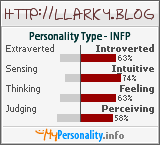". . . At least nine out of ten have wasted their time and pains
during several years of their life—telling, important, even decisive
years. Among such are to be counted, first of all, the half or
two-thirds of those who present themselves for examination—I
refer to those who are rejected; and then among those who are
successful, who obtain a degree, a certificate, a diploma, there is
still a half or two-thirds—I refer to the over-worked. Too much
has been demanded of them by exacting that on a given day, on
a chair or before a board, they should, for two hours in succession,
and with respect to a group of sciences, be living repertories
of all human knowledge. In point of fact they were that, or
nearly so, for two hours on that particular day, but a month later
they are so no longer. They could not go through the examination
again. Their too numerous and too burdensome acquisitions
slip incessantly from their mind, and are not replaced.
Their mental vigour has declined, their fertile capacity for
growth has dried up, the fully-developed man appears, and he is
often a used-up man. Settled down, married, resigned to turning
in a circle, and indefinitely in the same circle, he shuts himself
up in his confined function, which he fulfils adequately, but
nothing more. Such is the average yield; assuredly the receipts
do not balance the expenditure. In England or America, where,
as in France previous to 1789, the contrary proceeding is
adopted, the outcome obtained is equal or superior."
The illustrious psychologist subsequently shows us the difference
between our system and that of the Anglo-Saxons. The latter
do not possess our innumerable special schools. With them
instruction is not based on book-learning, but on object lessons.
The engineer, for example, is trained in a workshop, and never
at a school, a method which allows of each individual reaching
the level his intelligence permits of. He becomes a workman or
a foreman if he can get no further, an engineer if his aptitudes
take him as far. This manner of proceeding is much more democratic
and of much greater benefit to society than that of making
the whole career of an individual depend on an examination,
lasting a few hours, and undergone at the age of nineteen or
twenty. - M. Taine
Here, Thaine is attacking what KOLB may call assimilators(consisted of abstract conceptualization and reflective observation). Unfortunately, almost all schools in the world have the "assimilation" teaching approach(just because it's cheaper and easier for teachers, I imagine). However, students, especially the youngsters do not usually fit into the assimilating category. And even though assimilators are supposedly the most "logical and thoughtful" ones of all learning types. They prefer intrinsic "simpleness" and "cleanness" opposed to the extrinsic "messiness" which is the reality of life. Not only do I find that sad and pathetic, I also find it completely, if not extremely! contradictory. I say they should just describe it the way it really is.
Assimilation approach - the easiest, the cheapest to "educate" the youngters. By educating I mean, destroying all their enthausiasm/potential to realize themselves fully and completely and forcing them to memorize abstruse details that they will eventually forget because they were not motivated to learn about them in the first place. However, the fundamental problem does not lie in that. It lies in the fact that such repeated process eventually makes students lose their interest in education and makes them grow up to be dumb, weary, average adults
which of course is what the state wants. Who likes a society full of fully-realized, mentally healthy, energetic, intelligent individuals.
One might consent, perhaps, at a pinch, to continue to accept
all the disadvantages of our classical education, although it produced
nothing but discontented men, and men unfitted for
their station in life, did the superficial acquisition of so much
knowledge, the faultless repeating by heart of so many textbooks,
raise the level of intelligence. But does it really raise this
level? Alas, no! The conditions of success in life are the possession
of judgment, experience, initiative, and character—qualities
which are not bestowed by books. Books are dictionaries,
which it is useful to consult, but of which it is perfectly useless
to have lengthy portions in one's head.
How is it possible for professional instruction to develop the
intelligence in a measure quite beyond the reach of the classical
instruction? This has been well shown by M. Taine.

No hay comentarios:
Publicar un comentario